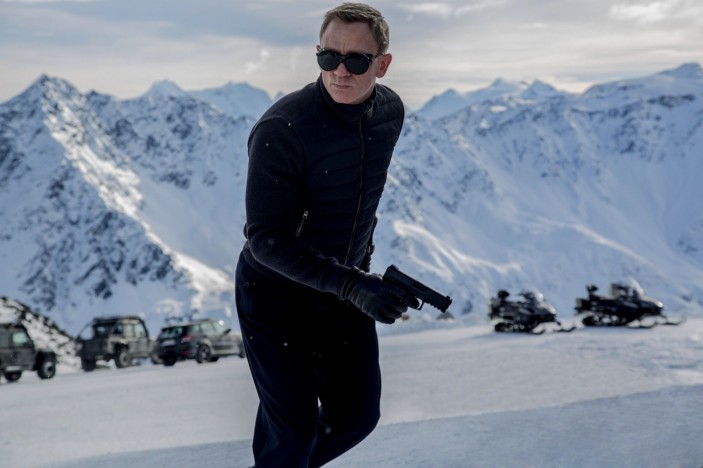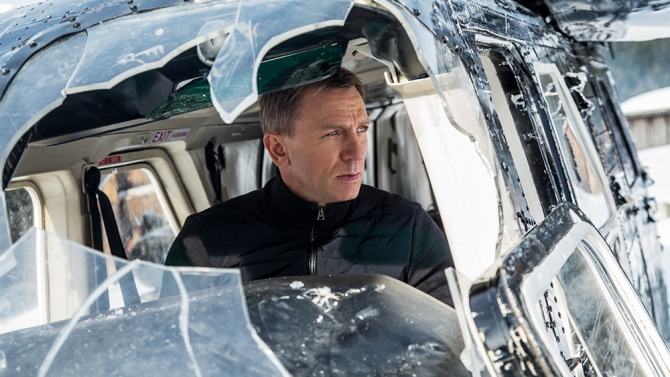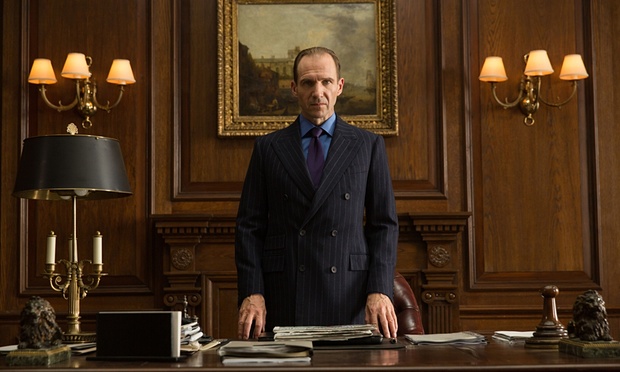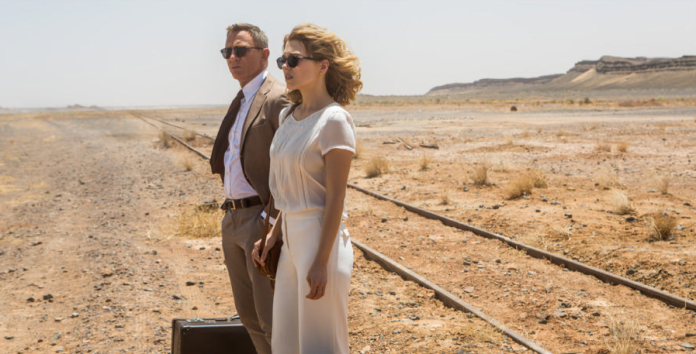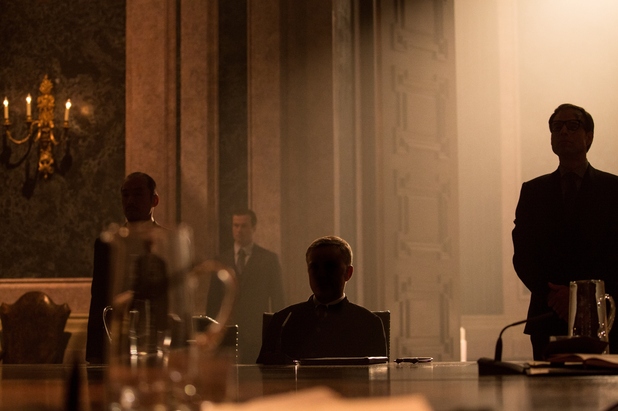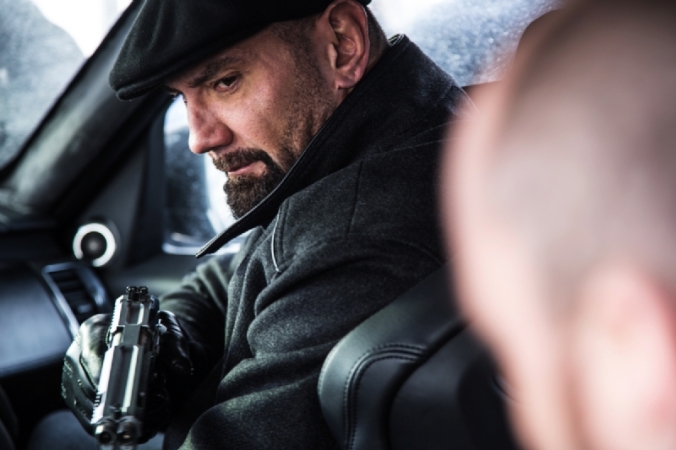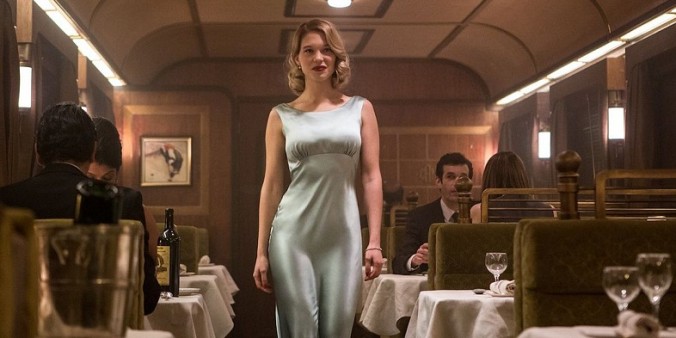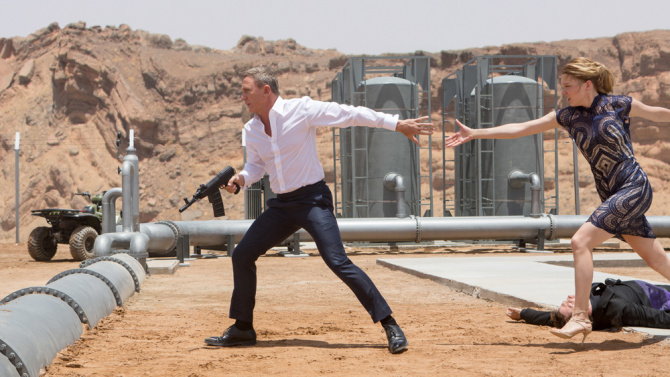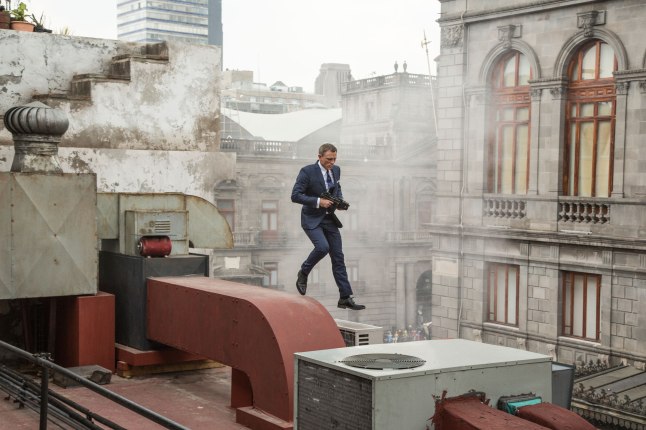United Kingdom | 26 October 2015 | Directed by Sam Mendes | Starring: Daniel Craig, Christoph Waltz, Lea Seydoux, Ralph Fiennes, Ben Whishaw, Naomie Harris, Dave Bautista, Monica Bellucci, Andrew Scott, Rory Kinnear
The amount of hype and expectation around the James Bond franchise has reached monumental proportions. After saying goodbye to the Pierce Brosnon days with the completely daft and inept Die Another Day, the Daniel Craig Bond started afresh, presenting a darker, more psychological take on Britain’s top secret agent. Casino Royale disposed of the sheer silliness of Brosnon’s invisible cars, ice palaces and tsunami-surfing and saved the genre, going back to basics whilst also introducing 007 to 21st century cinema.
We begin the Craig revival by witnessing Bond bagging his first kills, finding (and losing) his first love, becoming a heartbroken stone-cold killer in Quantum of Solace and then progressing through to Skyfall where he’s a hopeless, emotionally battered agent on his last legs who needs some dusting off before he can return to the action. 007 has developed into the humanised, emphatic character that everyone wanted and it is the first collection of Bond films where the increasingly personal plot-lines continue from one film to the next. In this latest instalment, Vesper Lynd’s betrayal and death is still haunting Bond and the demise of Judi Dench’s M has had a critical effect on the political position of the MI6. These are just some of the running plot threads that you will see coalesce in Spectre.
Sam Mendes, like Casino Royale‘s Martin Campbell had a perfect opportunity to make his mark on the series with Skyfall, as he followed a relative flop in the franchise. Quantum of Solace was ‘fine’ – despite continuing to play with Bond’s tender emotions it lacked the substance and grandeur of its predecessor and through its urge to create mammoth action sequences reverted to some of the silly habits of the Brosnon era. Craig is so dark and cold here that he transforms into a one-dimensional killing machine, fighting a dreary villain, in a film that is utterly forgettable.
Forgetting Quantum is exactly what Mendes did by continuing the stylish work Casino Royale started, but also upping the stakes – making Bond and MI6 the targets and molding Skyfall into a gritty, cat-and-mouse revenge thriller. With his Bond debut becoming such a triumph, the easiest and safest approach would have been to make the same film again. Though it was more than obvious that no one would accept a slightly disappointing follow-up, so Mendes riskily decided to make Spectre a completely different film and blew expectations out of the water.
The film opens rather lavishly in Mexico City for the Dia de los Muertos festival, where Bond attempts to assassinate a target amongst thousands of costumed civilians. Mendes must have taken a note from the Birdman book, because the scene begins with a beautifully captivating 5-minute long tracking shot, which from the get-go establishes the degree of confidence that the crew have approached this movie with. One gargantuan action sequence later, we are subject to Sam Smith’s pleasant yet comparatively underwhelming Writing’s On The Wall, which I’m afraid can’t compete with Adele’s epic Skyfall title track or Chris Cornell’s vibrant You Know My Name sequence.
The story continues straight on from Skyfall, with Bond taking a secret assignment-beyond-the-grave from Judi Dench’s M, forcing him to go rogue around the world and subsequently discover a mysterious criminal organisation run by the enigmatic Franz Oberhauser, played by Academy Award-winning villian Christoph Waltz. Meanwhile, the MI6 (who have had an increased focus in the Craig films with Ben Whishaw’s Q, Naomi Harris’s Moneypenny and now Ralph Fiennes’s M being promoted to main character status) is under severe pressure from the government that feels the organisation cannot be trusted with upholding national security following Silva’s escape, his attack on the HQ and murder of M. Opposing the MI6, is the new CNS run by the annoyingly arrogant ‘C’, played by Andrew Scott, whose controversial plan for mass surveillance is gradually accepted by the global community as a succession of terrorist attacks begin to randomly hit major cities.
This issue feels very appropriate in the context of our digital age. The argument for global surveillance is posed against the use of supposedly increasingly ineffective and obsolete 00 operatives in the field like Bond, and it is C’s plan to effectively take over control of national security from the diminishing MI6. M delivers the argument that expert agents like Bond are the only people qualified to physically and emotionally make a kill, as opposed to the emotionally detached killers behind keyboards with their drones doing the dirty work thousands of miles away.
It’s a refreshing, relatable and ultimately believable plot line compared to the absurd ideas of global domination that feature in earlier films. However, the subject of surveillance unfortunately gets sidelined as Bond learns that the force working against him, much like Silva’s previously, is more to do with a personal vendetta spawning from the depths of his past. What continues from this is a cohesion and conclusion of the events in Casino Royale and Skyfall as well as a revisitation to even more historic Bond plot lines, so that Spectre is set up as a kind of grand denouement for the franchise. The concept does work and I can see what Mendes was trying to do, yet a part of me wishes he hadn’t gone so far.
What is enjoyable about Mendes’ return to historic Bond is that the style and atmosphere of Spectre feels similar to that of a classic Bond film of the Roger Moore and Sean Connery years. The only downfall of the otherwise spectacular Skyfall was that it strayed too far from the 007 formula, in the same way that Christopher Nolan completely revamped Batman with the progressively moody Dark Knight trilogy. At the end of the day, Skyfall wasn’t really a Bond film and this is what Spectre tries to amend.
From the extreme globe-trotting to the old and wacky (yet still simple and logical) gadgets, from the elaborate bases filled with anonymous henchmen and a silent-but-deadly tough guy to the jaw-dropping and ultimately memorable action set pieces, Spectre is the most nostalgic, eye-catching and fun-filled Bond film we’ve seen in long time. I found myself smiling throughout and even laughing, mostly at Ben Whishaw’s brilliantly lovable Q and of course Bond’s witty pre and post-kill quips.
Of course every moment constantly borders on being a cliché and unfortunately, in the attempt to reanimate memories of earlier Bonds, some seem reminiscent of the Austin Powers films (in the conference scene, pictured above, I couldn’t help but think Oberhauser would pull a lever and a subordinate would go flying into a pool full of sharks with laser beams attached to there heads). This aside, some of the throwbacks seemed too identical to classic moments they were referencing like the use of the ejector seat and the train fight sequence with Hinx that seems to be the amalgamation of two previous train fights from The Spy Who Loved Me and From Russia With Love.
There are dozens of other more subtle nods to earlier works such as Craig’s Day of the Dead costume being similar to former villain Baron Samedi’s attire in Live and Let Die and the final scene in MI6 harks back to Scaramanga’s mirror maze in The Man with the Golden Gun. These references aren’t really obtrusive and are really just treats for the Bond geeks, but they do show the extent to which Mendes is desperately attempting to drown us with nostalgia. Despite being perfectly thrilling, even the mountain chase sequence and both helicopter sequences could be seen as rather regurgitated when linked to similar scenes in For Your Eyes Only, On Her Majesty’s Secret Service and Goldeneye. Again, these scenes are very enjoyable but will never be as memorable as the highly original and extensive parkour chase that opens Casino Royale. I’d be happier if Mendes simply took inspiration from these classic Bond moments to create something original, rather than forming a montage of replicated ‘best bits’. I believe he succeeded in doing so with Oberhauser’s uber cool crater base and the torture machine, which was obviously recalling a similar situation from Goldfinger, but at the same time was completely different and utterly gruelling – in a good way.
Spectre fundamentally uses all the Bond clichés we know and love and it is great to see a film embrace the legacy of its twenty-three predecessors – at times Spectre just goes a step too far with some of the allusions. Equally, in some instances, the film doesn’t go quite far enough on the retro scale, as I thought that Hinx, played by Dave Bautista, despite possessing one of the coolest and scariest entrances of any Bond character, ultimately fails to live up to his potential after this. Although our ex-WWE superstar puts in a dedicated shift physically, he lacks the charisma or any defining characteristic to allow him entry into the Henchman Hall of Fame along with the likes of Jaws, Oddjob and Xenia Onatopp. One can debate all night whether Mendes doesn’t go far enough or doesn’t know when to stop, but what is for certain is that this director is obviously a true fan of the franchise and knows what it takes to make an iconic Bond film. No one could have predicted this level of historical throwback, so there’s no point debating if it’s right or wrong, just sit back an enjoy this classic of all classics.
Though just to continue with the nit-picking a bit longer, there are certain scenes, locations and characters that I believe deserved more screen time than others. For example, I was rather excited when I heard that Monica Bellucci (whom was destined to be a Bond girl after her super sexy role in the Matrix trilogy) was finally selected and broke conventions by being Bond’s oldest love interest; only to be subsequently devastated when I realised she would only be on screen for about 3 minutes. Belluci’s potential was completely wasted as she is used just to completely fall for Bond and then be discarded like so many before her.
Luckily, we have Lea Seydoux, playing the contrastingly stronger, more independent and heroic Madeleine Swann. Much like the increasingly influential and action-savvy Moneypenny, she doesn’t fall for Bond’s tricks and presents a character who has more emotional depth and significance than your average ‘Bond Girl’, and crucially isn’t just there to be eye candy. With the fiery attitude of Eva Green, she resists Bond for some time, but ultimately succumbs to his charms, yet equally so does he to hers.
Similar to Bellucci, I feel that the talents of Christoph Waltz were also somewhat wasted as the villain time was instead allotted to the comparatively banal Andrew Scott. Apart from a silhouetted early appearance, like Javier Bardem, Waltz’s character isn’t fully introduced until over half way through the film and even though he inevitably delivers an enjoyable performance, I was definitely left wanting more. The same goes for his character’s brilliant crater lair, which evoked the designs of previous villainous bases, yet so much time was given to globe-trotting elsewhere that it feels like this location also isn’t allowed to reach its full potential. Essentially, Mendes has had to cram a 5-hour film in to 2.5 hours and therefore several of the action sequences, characters, locations and plot lines have been given priority over others that are more expendable, resulting in an end product that could have been a lot tighter.
After leaving the BFI IMAX, I was mostly overwhelmed with joy, owing to the sheer spectacle and entertainment that Spectre provided but after some quiet reflection I began wishing that some of the smaller details to do with plot and style were given more thought. Though if the immediate reaction was that Spectre was an exceptional cinematic experience that provided immense pleasure and resuscitated the Bond-lover within me, then why be fussed with all the rest. I have heard plenty of bad reviews, labelling the action scenes as boring and slating the film for not being as good as Skyfall; but when all is said and done, I am completely perplexed that anyone can sit and watch that captivating opening scene and the dozen action scenes that relentlessly follow, the stunning cinematography throughout, the glorious locations and brilliant dialogue from an incredible ensemble led by the greatest Bond we’ve ever had – and not be entertained.
The previous Craig films dealt with the spy’s origins, his first kill, his first love, his ageing, his mummy issues. In Spectre, James Bond has developed in to the fully-fledged secret agent who is ready to take on any mission. Although the ending of Spectre presents a clean conclusion to the Craig era, making way for someone else to take the reigns, from a character’s perspective, Bond is now psychologically stronger than ever and with a fresh, solid MI6 team around him – surely this isn’t the end but rather – the beginning. Changing the star at this point would mean highly dangerous changes across the board, thematically and in terms of story. So surely from a filmmaking and box office perspective, the invincible Craig-Mendes formula is an absolute no-brainer. Then you have to think – simply how do you follow Spectre?
Quantum of Solace failed so fantastically because it was trying to recreate Bourne rather than Bond, and although the exceptional Skyfall rectified the mistakes and healed the wounds, we were still in danger of being dragged down a path that was too gritty and too humourless. Spectre has pumped fun, energy and pure Bondness back into the franchise, not trying to bombard us with an overly complex or emotional story, but one that aims to entertain the audience with every shot. Whilst continuing to modernise the Bond universe with an increasingly humanised central figure, Mendes brings back all the tropes and themes of old, giving us a perfect mix of contemporary and classic and reminding us of why we all fell in love with 007 in the first place.
